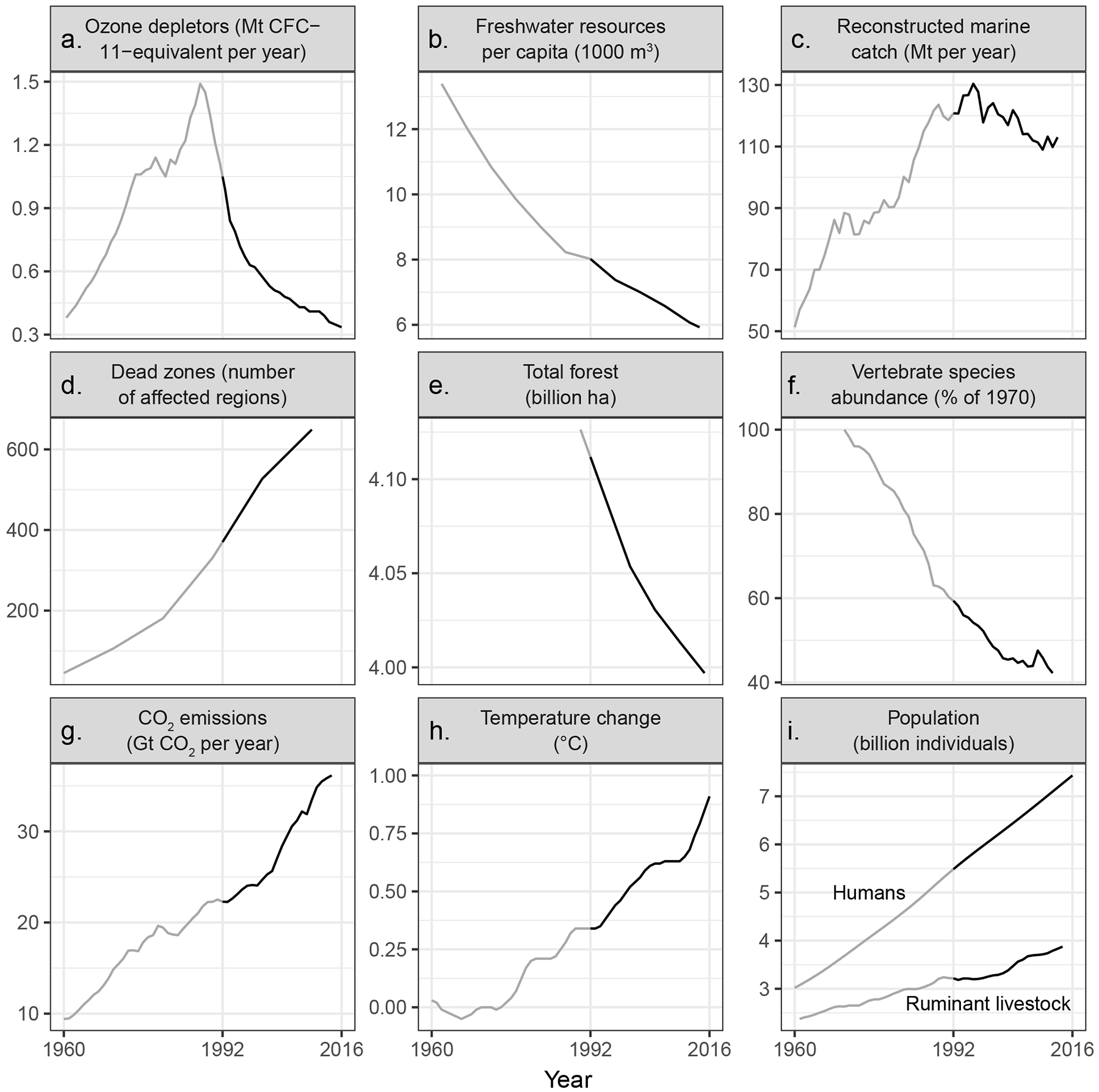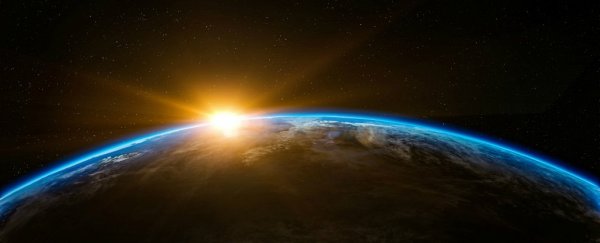In 1992, more than 1,700 concerned scientists - including the majority of living Nobel Laureates - penned an urgent warning to humanity at large. The message was simple: if we do not take drastic action, human misery will prevail and our planet will be "irretrievably mutilated".
Twenty five years later, not much has changed.
Now, scientists are giving humanity a second chance. The article, "World Scientists' Warning to Humanity: A Second Notice", warns that humans are on a collision course with the natural world, and if immediate action is not taken, we will be unable to avoid substantial and irreversible harm to the Earth.
The article, which was published on Monday, has already been cosigned by more than 15,000 scientists in 184 different countries. And the signatures are still coming in.
Co-author Thomas Newsome, a research fellow at Deakin University and The University of Sydney, said he believed this was possibly the biggest number of signatories to any published scientific paper.
"It's an overwhelming response we didn't quite expect," said Newsome.
The article was created in the United States and seeded in Australia before it went viral, gaining signatures across the world. Newsome says that on their first callout day, four months ago, they attracted nearly 600 signatories.
"People just started sharing the letter; it was added to a few email lists and things just took off from there," he said.
In the original 1992 warning, scientists argued that humanity must bring "environmentally damaging activities under control" to restore and protect the planet that we all rely on.
The report laid out nine different areas of improvement, including ozone depletion, forest loss, climate change and human population growth.
"In this paper we look back on these trends and evaluate the subsequent human response by exploring the available data," explained Newsome.
Reflecting on the 1992 warning, the researchers discovered that not only has humanity failed to address environmental challenges, in some instances they have gotten far worse.
In fact, the authors reveal that out of all nine areas of improvement highlighted in the original report, only the ozone has been successfully tackled.
The current trajectory of climate change, deforestation and agricultural production - particularly meat consumption - is especially troubling to scientists.
Among the more worrying findings of the report are:
- a 26 percent reduction in the amount of fresh water available per capita
- a loss of nearly 300 million acres of forestland
- a 75 percent increase in the number of ocean dead zones.
Just take a moment to let that sink in.
 (Ripple et al., 2017)
(Ripple et al., 2017)
Nor can we forget the bleak future of our planet's current life forms. The article warns that the mass extinction event that humanity has unleashed - the sixth in roughly 540 million years - places our planet's biodiversity at exceptional risk.
The review found a worrying 29 percent reduction in the numbers of mammals, reptiles, amphibians, birds and fish on Earth. Scientists warn that if we continue on in this vein, humanity will cause irreversible and "catastrophic biodiversity loss."
In Australia, the loss of biodiversity is particularly evident. In 2017, Australia ranked number two in the world for global biodiversity loss, falling just behind Indonesia. According to Newsome, in his country, habitat loss is the number one threat to biodiversity.
"There's been recent reports on an alarming rise in tree clearance in Queensland - about 400,000 hectares per year; the equivalent of 400,000 football fields - which puts us in line with Brazil," Newsome said.
"All the while we have very low public spending for example on threatened species … we spend more rehabilitating mine sites each year.".
A large part of these environmental catastrophes are due to the rise in human population. Since 1992, the human population has ballooned, increasing by 35 percent, which amounts to another 2 billion people. According to current trends, by 2050 the human population could rise to more than 9 billion. Scientists worry if we do not stabilize the human population soon, the stress that we place on our environment will continue to get worse.
"By failing to adequately limit population growth, reassess the role of an economy rooted in growth, reduce greenhouse gases, incentivize renewable energy, protect habitat, restore ecosystems, curb pollution, halt defaunation, and constrain invasive alien species, humanity is not taking the urgent steps needed to safeguard our imperilled biosphere," the paper concluded.
But all is not lost.
Scientists point to the improvement of the ozone as evidence that humanity can implement positive change when we set our minds to it. Just this month, measurements from satellites showed the hole in the ozone layer over Antarctica was the smallest it has been since 1988, according to scientists from NASA and NOAA.
It's crazy what happens when governments listen to scientists. So, how can we get that to happen more often?
The article calls on scientists, media influencers and lay citizens to put pressure on their governments and political leaders to take immediate action. The article argues with organized grassroots efforts, citizens can compel their political leaders to invest in renewable energy and environmental research, while phasing out subsidies for fossil fuels.
But it isn't just up to politicians to make these changes. The report argues that even the layman can alter their everyday behavior to positively impact the environment. For instance, the authors suggest limiting our own reproduction and drastically reducing the amount of fossil fuels we use and the meat we consume.
A quarter of a century ago, humanity collectively ignored an urgent warning from the world's leading scientists. Now, time is running out, and we cannot afford to keep disregarding scientists and their research. Maybe this time, we will actually heed their advice.
After all, there is no planet B.
The article was published on Monday in BioScience.
Scientists can continue to endorse the warning here.
This article was originally published by Science As Fact. Read the original.
